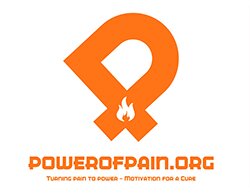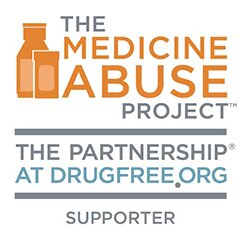| Medication: |
Accutane (Isotretinoin) |
| Dosage: |
10 mg, 20 mg, 30 mg, 40 mg |
| Price: |
from $1.25 per pill |
| How to Buy |
Get Started Now |
Accutane (Isotretinoin)
To treat mild forms of acne, it is enough to use local agents. However, if the pathology takes a severe course, then it is necessary to turn to systemic therapy. One of the components of such therapy is retinoids, including the drug Accutane.
How does Accutane work for acne?
The development of the problem of acne is associated with an increase in sebum secretion and thickening of the excretory ducts of the glands. This leads to their clogging and the creation of conditions for the proliferation of microbes, in particularpropionobacteria.
Isotretinoin, as a derivative of vitamin A, affects several aspects of this pathology:
- Regulating the production of sebaceous secretion, which leads to a decrease in its volume.
- Inhibition of epithelial cell proliferation.
- Anti-inflammatory effect.
The drug has low systemic bioavailability, which may increase with food intake. Once in the blood, isotretinoin is almost completely bound to albumin, and half of its plasma concentration is found in the epidermis. Metabolism occurs in the liver, and excretion occurs through the kidneys and intestines.
The effectiveness of the drug is due to its effect on several mechanisms of acne development: regulation of sebum production, reduction of hyperkeratosis of the intraductal epithelium, and reduction of inflammation.
Instructions for use
Accutane is used to treat severe forms of acne when other methods (including topical and antibacterial treatments) are ineffective. However, the prescription and dosage regimen of the drug must be determined by the doctor.
The standard dosage for adolescents and adults (including the elderly) is 1-2 capsules 1-2 times daily. The duration of treatment depends on the daily dose and is usually 4–6 months to achieve remission. In most patients, acne completely disappears after one course of treatment. If acne relapse occurs, Accutane is repeated, observing a 2-month interval after the previous course.
What to do before and after treatment?
Particular attention is paid to the treatment of women of reproductive age. Before prescribing the drug, you need to make sure that the patient with severe acne understands several points:
- Danger of teratogenic effects of the drug.
- The need to regularly visit a doctor.
- The ability to use reliable methods of contraception (even in the presence of amenorrhea).
- Immediately consult a doctor if you suspect pregnancy.
Contraception should be used one month before starting Accutane, during treatment, and for 30 days after it. The drug should be started on the second or third day of the normal menstrual cycle. The woman also undertakes to carry out a pregnancy test before starting treatment, during therapy, and 5 weeks after its completion.
Side effects of the medicine
Many of the undesirable effects of Accutane depend on the dosage and may disappear after changing the dosage regimen or discontinuing the drug. The most common side effects are dry skin and mucous membranes such as the lips, mouth, and nasopharynx, as well as conjunctivitis.
Other possible side effects include:
- Skin problems (flaking, redness, itching, rash, acne worsening, increased sensitivity to sunlight, hair loss).
- Nervous and mental problems (headaches, dizziness, drowsiness, depression).
- Eye problems (conjunctivitis, inflammation of the eyelids, blurred vision).
- Problems with the respiratory system (nosebleeds, runny nose, bronchospasm).
- Digestive problems (inflammation of the intestines, inflammation of the pancreas, increased levels of liver enzymes).
- Problems with the hematopoietic system (anemia, accelerated erythrocyte sedimentation rate, decreased levels of neutrophils and platelets).
- Problems with the musculoskeletal system (pain in the joints and back, inflammation of the joints, decreased bone density).
- Allergic reactions (skin itching, swelling, anaphylaxis, Stevens-Johnson syndrome).
In addition, the drug may affect some other indicators, such as the level of atherogenic lipids, glucose, and creatine phosphokinase. Protein and red blood cells may also be found in the urine. Patients who engage in intense exercise are at risk of muscle damage (rhabdomyolysis).
As for women, in addition to the side effects already described, the teratogenic effect of Accutane is especially dangerous for them. Isotretinoin can cause congenital malformations of the fetus, affecting various organs and systems:
- Nervous system (micro- and hydrocephalus, cerebellar anomalies).
- Cardiovascular system (septal defects, transposition of the aorta, tetralogy of Fallot).
- Eyes and ears (microphthalmia, absence of the auricle).
- Facial skull (cleft lip and palate).
In addition, when taking the drug, the risk of spontaneous abortion increases. If a woman finds out she is pregnant, she should immediately stop taking Accutane and consult a doctor to assess the risk of teratogenic effects.
Contraindications to the drug
Considering the facts presented above, the doctor may prescribe the drug after conducting an examination and eliminating certain restrictions. Absolute contraindications for taking isotretinoin are the following:
- Pregnancy and breastfeeding period.
- Individual intolerance.
- Children age up to 12 years.
- The use of Accutane is not recommended for hypervitaminosis A, liver failure, and severe hyperlipidemia.
- It is also not recommended to take it if you have hereditary fructose intolerance due to the sorbitol content in the composition.
- Patients with diabetes mellitus, obesity, and alcoholism need to monitor blood glucose levels carefully.





